The goal of Pragmatic Inquiry is to uncover the values and vision at work to drive our behaviors, decisions, and actions.
Here are three examples of the Arc of Pragmatic Inquiry practice in the domain of Sustainable Economic Development Inquiry at DePaul University, the UN PRME Secretariat, and Presidio Graduate School. (See more case histories.
Background of Pragmatic Inquiry Leaders.
Current leaders come from a variety of backgrounds and interests, often leadership and strategy development, career discernment, philosophical/ethical inquiry, and there is a growing interest with Ecological Economics driving sustainable economic development. Faculty can come from any discipline and use the API in their class for their course assignments, or for the students to use the course information to further their own API.
What is shared by all the facilitators is an interest in helping their colleagues and students reflect, discern, and make better decisions for their organizations – based on their values and vision – to help develop a more just and sustainable world.

I. DePaul University (named for St. Vincent de Paul – 1581-1660))
DePaul University – Vincentian, urban, and Catholic (the largest Catholic University in the US) – is asking itself today, in keeping with the centuries-old guiding Vincentian question: “What must be done?”…to serve the needs of the poor and the impoverished environment.
We have further asked the question: “In what ways does the focus on sustainability function to build DePaul’s capacity to be an agent of social transformation?”
We have used the UN Global Compact and Principles of Responsible Management Education and the UN Sustainable Development Goals to guide our thinking.
DePaul is a signatory of the UN Global Compact – a strategic policy initiative for businesses that are committed to aligning their operations and strategies with ten universally accepted principles in the areas of human rights, labor, environment and anti-corruption. Further, DePaul is a signatory of the UN Principles of Responsible Management Education which states as their first of six principles:
Principle 1 | Purpose: We will develop the capabilities of students to be future generators of sustainable value for business and society at large and to work for an inclusive and sustainable global economy.
A first effort was through the Institute for Business and Professional Ethics by offering a Sustainable Management Lab.
This foundation prepared the way for the major step of integrating Sustainability into the curriculum by launching in 2012 the MS in Sustainable Management in the Kellstadt Graduate School of Business:
Since our involvement with the UN PRME, we were asked to contribute a chapter for a UN PRME book describing the Capstone course in detail.
“Integrating the 6 Principles of PRME in Practice through Pragmatic Inquiry – a Sustainable Management Case Study” in the UN PRME Series: Educating for Responsible Management. (Includes Introduction, TOC, 6 PRME Principles, and Conclusion.)

II. UN PRME
The UN Secretariat for Principles for Responsible Management Education (PRME, which has a long development history from the founding of the UN) held its 3rd Global Forum in June 2012 at United Nations Conference on Sustainable Development – Rio +20.
The purpose of the Global Forum was to test certain ideas of what business schools and management related academic institutions and universities can do to train current and future generations of management leaders to build the foundation for sustainable global economy, society and biosphere challenges.
For the first time, in the spirit of Pragmatic Inquiry, PRME Global Forum theme was a question – rather than a statement – to frame the Forum:
“How can PRME facilitate individual and systemic changes in management higher education as the community addresses the vision of sustainable development through responsible management education?”
Participants were provided with Pre-work hypotheses developed by a steering committee – and based on previous work – to test during the Rio+20 Global Forum.
Global Forum Participants Guide with Pragmatic Inquiry
Pragmatic Inquiry was designed as a “red thread” through the Global Forum for the several hundred leaders in management education to test assumptions, gather data, interpret the data and develop action plans for the systemic change needed in management education. The UN PRME team shared the work on what would become the UN SDGs, which is an important step with global impact.
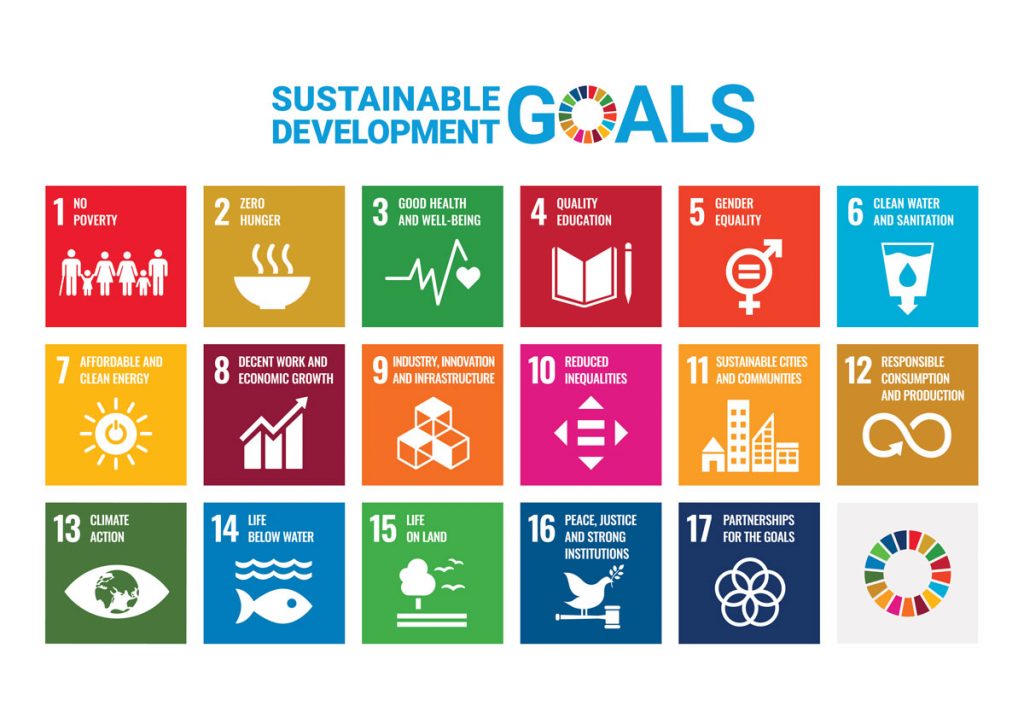
Here is the story of the Global Forum told by the then director of the PRME Secretariat in the Epilogue of “Learning to Read the Signs” (see books) UN PRME and Pragmatic Inquiry.

III. Presidio Graduate School
Presidio World College launched the first MBA in Sustainable Management in the US in 2003, and announced it to the academic world in 2006 at Oxford University, Department of Educational Studies. (The program was “branded” under Presidio School of Management, now called Presidio Graduate School.)
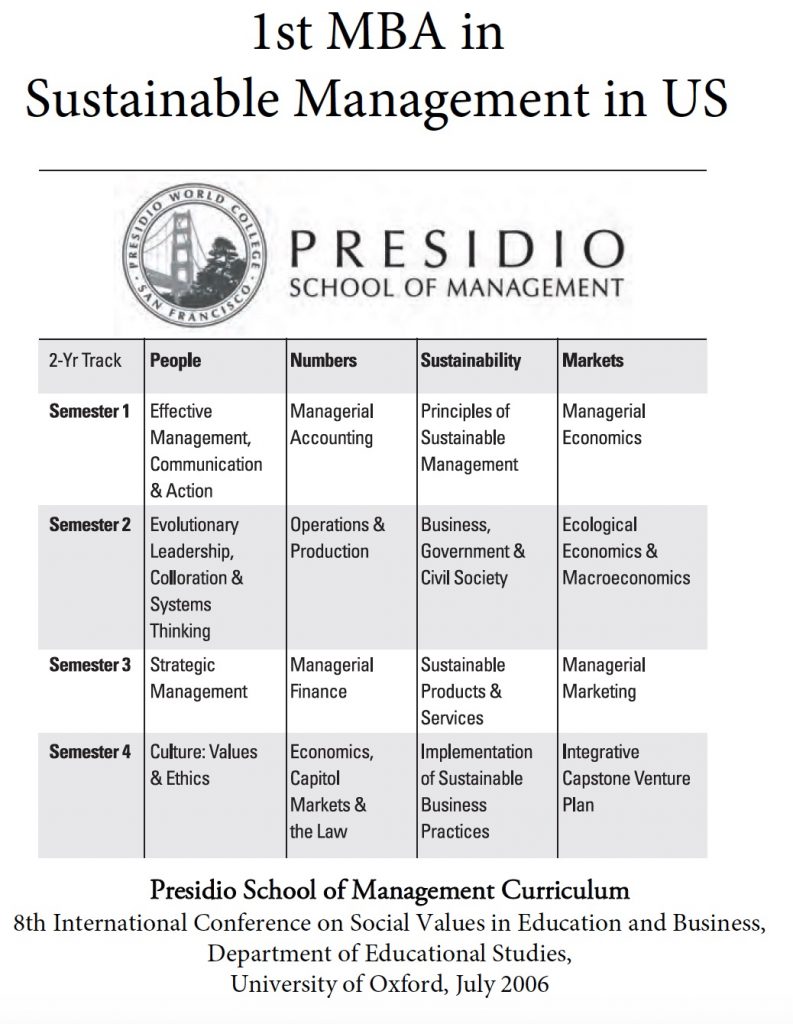
Two years later, Presidio caught national attention in Newsweek:
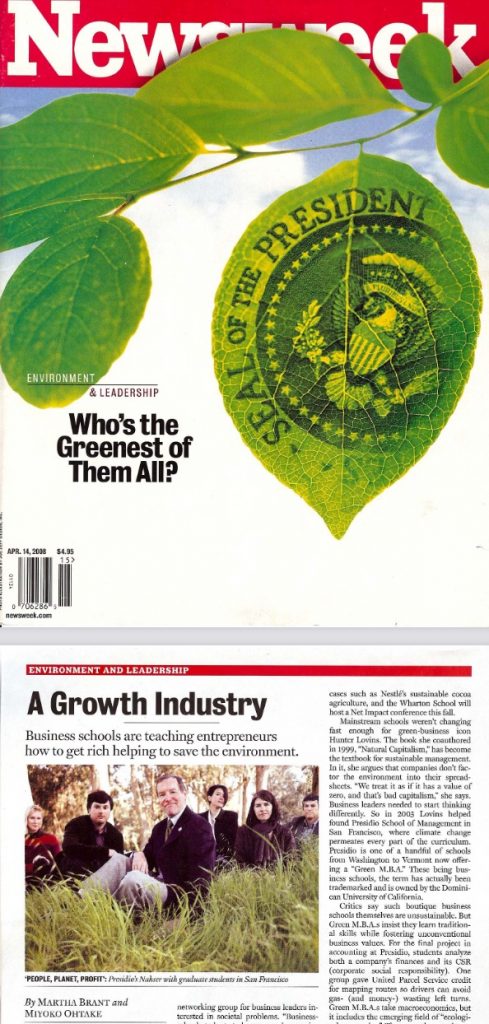
From the article: “But it’s the atmosphere at Presidio that makes it so different from Harvard.”
And then, 7 years and 1,700 graduates later, journalist Duff McDonald, while researching for a book on Harvard Business School. (see adjacent side panel) surveyed the MBA global scene and wrote this 2015 land-mark article:
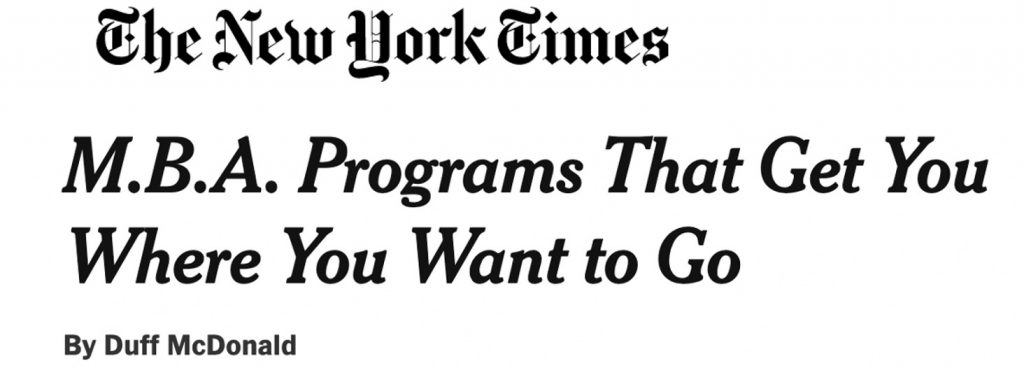
The premise: “With 13,000 graduate business programs around the world, the MBA degree has clearly become a commodity.” So then how do you distinguish one from the other? McDonald said you might consider which programs have the best success in getting you to a future career path and went on to list a dozen programs. For example, if you want to go into private equity, go to Stanford. McKinsey? Go to Kellogg. P&G? Kelley at Indiana. Luxury goods? HEC in Paris. Start your own company? HBS. etc. And then he concluded:
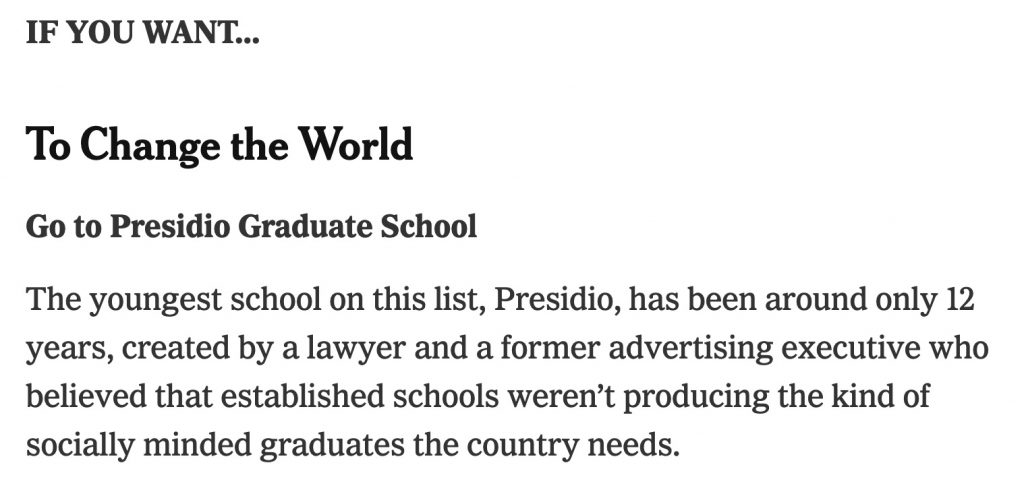
Ron Nahser joined the two co-founders, Dick Gray and Steven Swig in 2004, the year after the launch with 22 students and the curriculum still in flux. Gray and Nahser, after careers in advertising, both had pursued graduate studies. With Swig, they saw that their PhD dissertations in Education and Moral Philosophy (respectively) complemented each other and led to the founding moral philosophy of education: “It’s not what you know; it’s how you learn what you know.” That is, as you have seen in earlier sections of this website, Pragmatic Inquiry – reflection on experience – focuses on challenging assumptions, both those of the inquirer’s and the community’s. Here are the 3 pillars of the founding philosophy:
- Learner’s engaged participation through Project Oriented Learning and Pragmatic Inquiry as the process of disciplined reflection and action based on experience;
- Systems thinking and practice to design creative solutions that take into account the interrelationships among human, organizational and ecological systems; and
- Integration and communication of knowledge culminating in an integrative capstone course where students demonstrate their mastery of the program’s core competencies and have the opportunity to uncover, define, articulate and test their “calling” – the work they sense they are called to do.
The premise is that the program includes social and environmental justice in every course in the program and the course teaching is interdisciplinary. That in itself is unusual and challenging. But the Presidio educational method goes further with the premise that the educational focus is student-centric, not content-centric as virtually every other educational institution is based…the so called department “silos.”
This student-centric/values-based vision focus means that the program’s aim is to guide each student to absorb the teaching and interaction and life of the community to further develop their “calling, purpose, career path, etc.” (where they find meaning and purpose), driven by their values. This “Arc of Pragmatic Inquiry” begins with their “Big Idea“.
Here is the cover page from a recent Capstone course to develop an intervention in the student’s target “market ecosystem” to build a just and sustainable community. And then have a business/economic case – a story/narrative – to change minds, convince investors of all kinds – colleagues, employees, financial investors, voters and most importantly, customers and citizens – and implement their “big idea.”
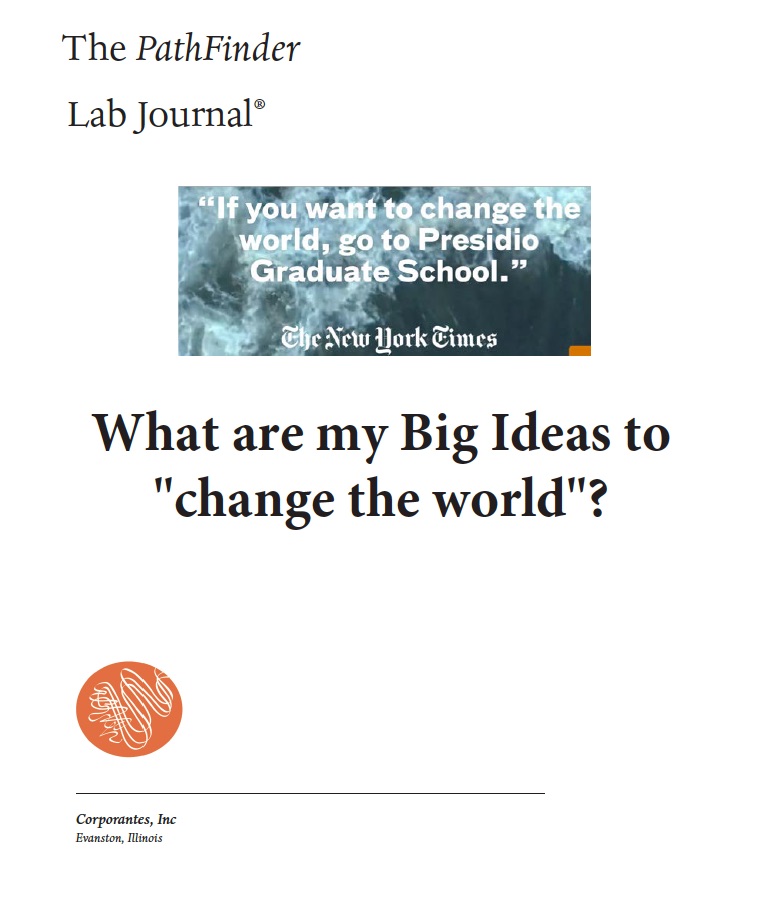
We stated the Presidio foundational educational goal:
“If we develop and launch a future/systems-oriented, values-driven integrative educational practice, Presidio Graduate School (then Presidio World College) would be making a unique contribution in the long, rich, historical tradition of Western University ‘Liberal Arts and Science’ education of citizens.” See recent update reflection.
That was, and continues to be the Presidio Graduate School goal, and believe it should be the goal of the other 13,000 graduate schools of business in the world…to change the world…so all life flourishes.

